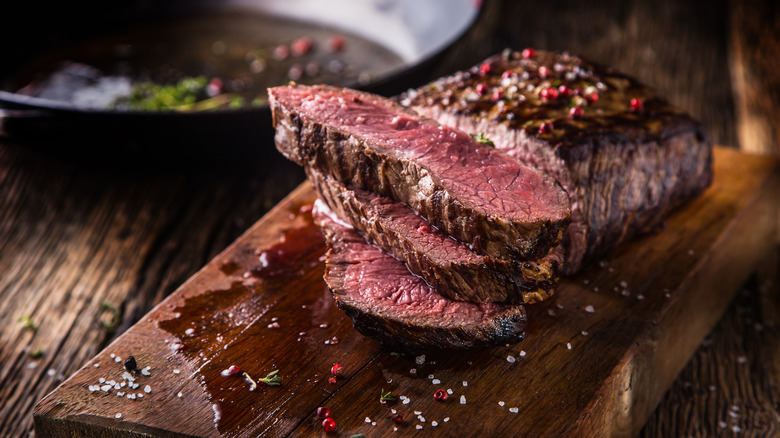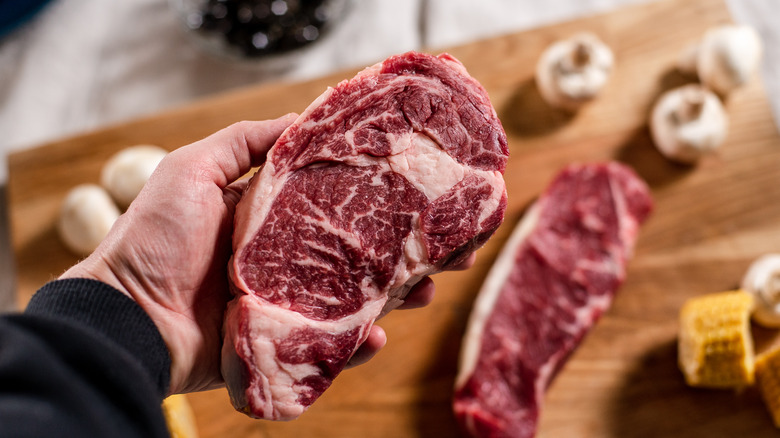Why Overcooking A Ribeye Steak Rarely Ruins It
For a carnivore, there are few pleasures greater than a perfectly cooked steak. Whether you're the master of the old school charcoal grill or you opt for the sear from a cast iron skillet, a steak gives every cook the chance to play with spices, flavors, and cooking methods. But, when it comes to cooking a steak overdoing it remains the cardinal sin, as Omaha Steaks points out it'll result in meat that's tough and dry.
Different cuts of steak cook up differently, so understanding your steak is key to plating a piece of beef that's flavorful and just the right texture. The ribeye is considered one of the best cuts of steak, and Ruth's Chris gives us some insight into the cut's popularity and history. Ribeyes are cut from between a cow's loin and shoulder, and more precisely, from ribs numbers 6-12. Ruth's Chris explains, "The name 'ribeye' was likely coined because this steak is found in the centermost part of the cow — the 'eye' — and is the best portion of the rib steak with the bone removed." Depending on where you are dining, a ribeye can also be called a Spencer steak, Delmonico, or an Entrecôte.
But how come overcooking a ribeye rarely ruins the meat in question?
It's all about the fat
Taste of Home helps break down the differences among the best cuts of steak, and explains that the ribeye, while not always as tender as a filet or tenderloin, suffers less from overcooking because it has plenty of intermuscular fat, which means that even bringing it off the grill at a higher than ideal temperature won't result in a steak that's tough or dry. Ribeyes are juicy cuts of beef, which gives a cook a little more wiggle room to plate a steak that's slightly overdone, but still delicious.
When selecting a ribeye, Traeger suggests looking for a cut with plenty of marbling, which offers the fat that makes a steak melt-in-your-mouth perfection. You should also make sure your steak is properly seasoned — you may need a little more salt and pepper than you'd think — and get your cooking surface good and hot, whether it's a grill or a cast iron skillet.

